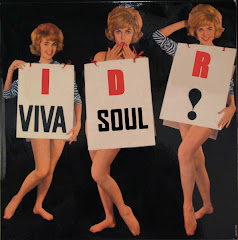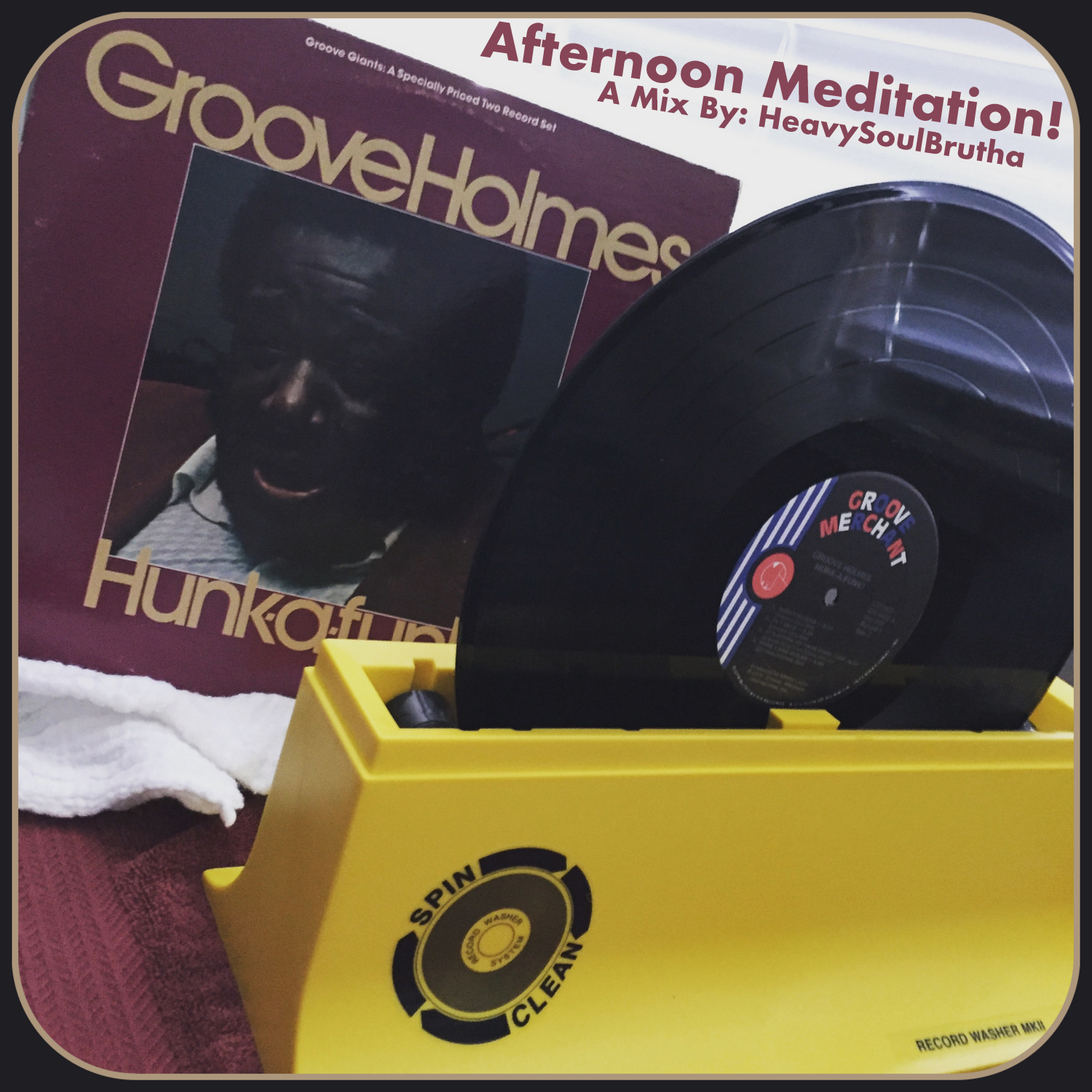Last Thursday, Bettye Lavette, one of the finest female soul divas, finally started to get the recognition she vastly deserves from the music industry at the R&B Foundation Awards.
My friend Weldon McDougal 111 was on hand to congratulate Bettye and has sent me the above photo following the award ceremony.
Here is the official blurb on Bettye's award:-
NEW YORK - Before Aretha Franklin was crowned the Queen of Soul, before the Supremes had their first hit and before anyone even knew who Stevie Wonder was, Bettye LaVette was the emerging star of Detroit.
ADVERTISEMENT The husky-voiced soul singer had a top R&B hit with the song "My Man — He's a Lovin' Man" in 1962 with Atlantic Records, and her initial success seemed to forecast a future as bright as the rest of her contemporaries.
But while many superstar legends came out of Detroit, LaVette wasn't one of them. Instead, she spent the next 40 years struggling to pay her bills, playing tiny clubs and falling deeper into depression as she tried to recapture the fleeting fame of her youth.
"The whole time was bad, period," LaVette told The Associated Press by phone on Tuesday. "It was humiliating — it took a lot of propping up by a core group of people."
On Thursday night, however, LaVette will show how far she's come from those bad times as she is honored as an R&B legend at the Rhythm & Blues Foundation's Pioneer Awards in Philadelphia, along with producer Thom Bell, Chubby Checker, singer Barbara Mason and the Delfonics.
Also, one of the most important figures in pop-music history, Motown founder Berry Gordy, will be on hand, honored with a lifetime achievement award. "There's got to be some feeling of evenness," says LaVette, who's enjoying a resurgence thanks to her critically acclaimed album, "I've Got my Own Hell to Raise," released last fall.
"Most of these people I've seen either broke or naked or drunk or all three," she jokes. "And for them to have gone on and to excel so much higher than I did, there's certainly going to be a great, great sense of satisfaction of being recognized on any level with the same people I left high school with."
LaVette insists she's not bitter: "Bitter is a thing that I would have had to sustain," she explains. But it's a fine point. During an interview, despite frequent laughter, it's clear LaVette is still simmering over four decades of frustration.
She still feels slighted that none of her former acquaintances helped her out during her bad times, called her to perform with them or even returned her phone calls when they got big. LaVette's life has not been only one of lowlights — she did Broadway at one point, had a successful record here and there — but for the most part, LaVette recalls having to rely on the support of others as she continued to pursue her dream.
Just four years ago, she was playing clubs for $100 a night. "I was being considered, by the older people who were making $20 and $30 a night, the star of the club," she says. Things began to turn around once she found an agency that took her on and raised her profile.
Soon, she was being hired for more money and at better venues. And last year, the record label Anti- paired her with noted producer Joe Henry, who had her interpret hits from female singers ranging from Aimee Mann and Dolly Parton to Roseanne Cash and Sinead O'Connor. "My thought was not about bringing her back to prominence," Henry said. "What I wanted to do was make a record that was as tough as she is. ... I knew that she was a survivor, and that she had survived as an artist without a lot of help, without the right kind of help."
The tide has certainly turned in LaVette's favor. She's gotten international media attention and gigs, and earlier this year was a featured performer at the Jammy Awards in New York, where groups like Blues Traveler were fawning over her.
Still, she still smarts that some of her peers are able to perform in stadiums — when they want — while she still sweats night after night in a club. "I'm making more money, but I'm 60 years old," she said. "The tragedy of it for me is that I still have to work for it ... I have to go on and do the same show that I did when I was 20. And that's what I'm trying to do."
The Rhythm & Blues Foundation's Pioneer Awards, where LaVette will be honored, are returning after a three-year hiatus because of money woes. LaVette, as a pioneer, will receive a cash award of $10,000 (groups receive $15,000, and honorees like Gordy don't receive a cash reward). "It should be a very interesting evening; I'm sure it will be a very emotional one for me," LaVette says. "I wanna look very stern and really mean, but will probably cry several times!"
Here is the official blurb on Bettye's award:-
NEW YORK - Before Aretha Franklin was crowned the Queen of Soul, before the Supremes had their first hit and before anyone even knew who Stevie Wonder was, Bettye LaVette was the emerging star of Detroit.
ADVERTISEMENT The husky-voiced soul singer had a top R&B hit with the song "My Man — He's a Lovin' Man" in 1962 with Atlantic Records, and her initial success seemed to forecast a future as bright as the rest of her contemporaries.
But while many superstar legends came out of Detroit, LaVette wasn't one of them. Instead, she spent the next 40 years struggling to pay her bills, playing tiny clubs and falling deeper into depression as she tried to recapture the fleeting fame of her youth.
"The whole time was bad, period," LaVette told The Associated Press by phone on Tuesday. "It was humiliating — it took a lot of propping up by a core group of people."
On Thursday night, however, LaVette will show how far she's come from those bad times as she is honored as an R&B legend at the Rhythm & Blues Foundation's Pioneer Awards in Philadelphia, along with producer Thom Bell, Chubby Checker, singer Barbara Mason and the Delfonics.
Also, one of the most important figures in pop-music history, Motown founder Berry Gordy, will be on hand, honored with a lifetime achievement award. "There's got to be some feeling of evenness," says LaVette, who's enjoying a resurgence thanks to her critically acclaimed album, "I've Got my Own Hell to Raise," released last fall.
"Most of these people I've seen either broke or naked or drunk or all three," she jokes. "And for them to have gone on and to excel so much higher than I did, there's certainly going to be a great, great sense of satisfaction of being recognized on any level with the same people I left high school with."
LaVette insists she's not bitter: "Bitter is a thing that I would have had to sustain," she explains. But it's a fine point. During an interview, despite frequent laughter, it's clear LaVette is still simmering over four decades of frustration.
She still feels slighted that none of her former acquaintances helped her out during her bad times, called her to perform with them or even returned her phone calls when they got big. LaVette's life has not been only one of lowlights — she did Broadway at one point, had a successful record here and there — but for the most part, LaVette recalls having to rely on the support of others as she continued to pursue her dream.
Just four years ago, she was playing clubs for $100 a night. "I was being considered, by the older people who were making $20 and $30 a night, the star of the club," she says. Things began to turn around once she found an agency that took her on and raised her profile.
Soon, she was being hired for more money and at better venues. And last year, the record label Anti- paired her with noted producer Joe Henry, who had her interpret hits from female singers ranging from Aimee Mann and Dolly Parton to Roseanne Cash and Sinead O'Connor. "My thought was not about bringing her back to prominence," Henry said. "What I wanted to do was make a record that was as tough as she is. ... I knew that she was a survivor, and that she had survived as an artist without a lot of help, without the right kind of help."
The tide has certainly turned in LaVette's favor. She's gotten international media attention and gigs, and earlier this year was a featured performer at the Jammy Awards in New York, where groups like Blues Traveler were fawning over her.
Still, she still smarts that some of her peers are able to perform in stadiums — when they want — while she still sweats night after night in a club. "I'm making more money, but I'm 60 years old," she said. "The tragedy of it for me is that I still have to work for it ... I have to go on and do the same show that I did when I was 20. And that's what I'm trying to do."
The Rhythm & Blues Foundation's Pioneer Awards, where LaVette will be honored, are returning after a three-year hiatus because of money woes. LaVette, as a pioneer, will receive a cash award of $10,000 (groups receive $15,000, and honorees like Gordy don't receive a cash reward). "It should be a very interesting evening; I'm sure it will be a very emotional one for me," LaVette says. "I wanna look very stern and really mean, but will probably cry several times!"






















%20phillip%20rauls.jpg)

























No comments:
Post a Comment